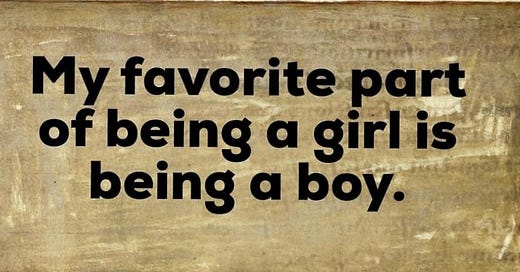The first buzz of my electric shaver sounds like the B note that opens Jet’s 2006 song Put Your Money Where Your Mouth Is.
Jet, to the blissfully unfamiliar, is an Australian band best known for their derivative McRock&Roll aesthetic and insipid songwriting which found foothold enough with the general public to warrant worldwide radio play in the early aughts (Are You Gonna Be My Girl? even soundtracked one of the iconic silhouetted iPod commercials).
Their sophomore album, Shine On, received a 0.0 out of 10 rating from Pitchfork; in place of a standard review, a YouTube video of a monkey peeing into his own mouth was embedded in its stead.
As a child, depth of lyric rarely factored into my criteria for musical enjoyment, and Jet’s driving guitars and frontman Nic Cester’s yelping, strained vocals helped me feel like a man on the school bus. I’d beat the song to death on the way to high school, one of the 30 or so tracks housed on my miniature Sandisk MP3 player; its opening riff (and the rest of the song) has embedded itself in the still-forming grooves of my brain, taking an unbefitting seat alongside other memories I cherish like the marjoram-laden scent of my Oma’s cooking and the feeling of holding my mother’s hand.
Sensory memory connects ephemeral stimuli with relevant information, thereby enacting permanence. The primary function of sensory memory is to provide a seamless and continuous experience of the world around us, and by holding sensory information momentarily, the brain integrates and makes sense of the barrage of stimuli we constantly receive. In the short term, this allows us to retain important sensory information for survival quickly; the smell of smoke on the breeze might signal to your ancestor that an unfamiliar tribe is camped nearby, or could spur you to say, “Oh shit, my toast!”.
In the long term, the evocative power of sensory memory is an extremely novel feature of the human experience, often linked to episodic recollections of one’s past. Those Proustian “involuntary memories” are often brought forth by smell and taste, those potent triggers of autobiographical memories that bypass the more analytical parts of the brain and connect directly with the parts responsible for emotion and memory-forming. The flaky first bite of a semi-sweet dan tat places me squarely in Manhattan Chinatown; if I’m already there (which I often am, if I’m eating a dan tat), I re-embody my 6-year-old self, picked nose, Gameboy Color, and all.
And so, the initial buzz of my old electric razor is enough to call forth memories of picking at the torn-up diesel-perfumed leather of school bus seats, of taking the roundabout way to the class to avoid a motley cast of bullies. I reprise my role as a child who had yet to understand their place relative to those around them, whose identity was nascent and every experience, like it or not, was a novel one, and who discovered all of their music through the Saint’s Row 2 soundtrack*, including this song. Being transported back to childhood by any novel stimuli connects to the concept of embodied cognition, which states that bodily experiences can serve as cues for recalling identity-related memories; essentially a deep link to one’s past triggered by a familiar sight, smell, scent, etc.
This involuntary memory is a curious thing to have spill forth while shaving; for myself, for who I am now, shaving is a way of gently pushing the gender fader from one section of the spectrum to another, while the song that reverberates in my head during evokes a certain ball-grabbing machismo. Even the song’s title proclaims that words are not enough; you had better “show me yours,” so that “I’ll show you mine,” a call to domineering male action. I am vigorously pulled back into an earlier sense of self, as I enact a ritual to better embrace the person I am now.
The act of shaving affords me temporary reprieve from the masculinity that facial hair signals and a sense of control over my gender expression. It is an active shedding of an identity I wish to unsubscribe to, though there are of course days where the shadow feels right to leave untouched. This is the perpetual pendulum swing of gender nonconformity, the rock pushed up the hill along a larger trajectory; “always part of a larger network of social control” as author and gender theorist Judith Butler writes in their book, Gender Trouble. This whole act is performativity and not just a way of “appearing more feminine,” but rather a form of “doing gender.” To Butler, gender is an ongoing performance shaped by repetitive actions, such as shaving, rather than an inherent or fixed identity.
For fun, I Googled “shaving to appear more feminine” and stumbled across a little forum for “alpha males”. Those posting lamented that shaving has “feminized” the modern man, that facial hair is a natural byproduct of testosterone, that culling its spread is to shirk Jesus, that paragon of beardliness. Some studies show that men with beards are often perceived as more dominant, assertive, and masculine. This feeds into the broader narrative of facial hair being a marker of power, and some research even suggests that men who wear beards feel more masculine, which influences their behavior—they, too, exist upon a spectrum of gender performance.
Other search results included young men anonymously asking Quora if they were to shave their legs out of personal preference, how might they hide them from their parents? To them, I’d say; shaving is already a manufactured compulsion—hair removal has long served as a signal of class and societally-defined notions of sex and gender. Hair removal does not equate to either outside of these constructed narratives. Managing one’s hair is one’s own decision; you shave simply so that you might be more comfortable. I feel more comfortable in androgyny and the Sisyphean act of culling facial hair, even if the sensorial memory attached evokes the opposite. It simply takes a rough B-note sound played by none other than an electric razor to pull me back to childhood, an earlier form in which androgyny was reserved for my favorite anime characters.
There is much power in fluidity. In a world that demands its denizens approach each day with both hardness and softness, is it not powerful to harness elements from each? Is it not exceptional to swim in the periphery between norms? Each pass of the razor pulls me back to who I once was while shaping who I choose to be—a reminder that in every act, from shedding hair to evoking memory, we are perpetually erasing and creating ourselves.
Literally me:
How to Be a Feminine Guy: 10 Steps (with Pictures)
Saints Row 2 soundtrack*:






this is such a beautifully written essay—there's a lot of writing out there about women's shaving practices and how it intersects with gender performance, but it felt like a real gift to get a careful consideration of shaving x masculinity!
this paragraph was especially beautiful to read—'This involuntary memory is a curious thing to have spill forth while shaving; for myself, for who I am now, shaving is a way of gently pushing the gender fader from one section of the spectrum to another, while the song that reverberates in my head during evokes a certain ball-grabbing machismo. Even the song’s title proclaims that words are not enough; you had better “show me yours,” so that “I’ll show you mine,” a call to domineering male action. I am vigorously pulled back into an earlier sense of self, as I enact a ritual to better embrace the person I am now.'